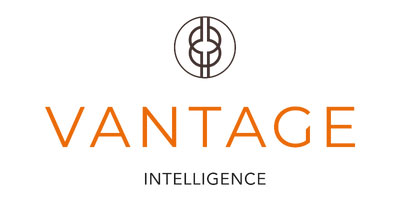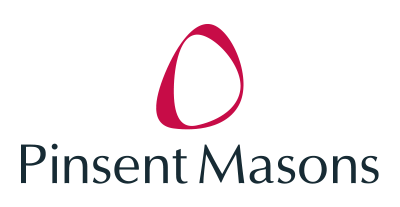Knowledge Hub
Join the Conversation!
Impartial and independent, ThoughtLeaders4 FIRE Knowledge Hub hosts cutting edge industry content and insight.
Email maddi@thoughtleaders4.com to submit content.
Fools Make Feasts and Wise Men Eat Them
Date: 30/05/2024 Type: Articles Topic: Private Client | Trusts | Wills and Estates | Inheritance | Next Generation Wealth | Investment and HNWI’s | Tax |Wisdom and wealth part company in an environment of unmediated conflict. When families and individuals with wealth disagree, the emotional dynamic overlaying disharmony can amplify disagreement quickly. Early, skilled professional support can help to prevent conflict from spiralling to the detriment of everyone involved.
Advising wealthy individuals in dispute is a unique challenge requiring a different strategy and approach when compared to disputes involving institutions and large corporates. The personal nature of these disputes, the need for careful management of client expectations, and the complexities of financial transactions and information availability all contribute to the distinctiveness of dispute resolution with a personal dynamic.
Advisors need to be sensitive, adaptable, and clear in their communications, ensuring they provide tailored support that aligns with the client's personal and commercial intentions. By understanding these nuances and navigating the intricacies involved, advisors can effectively manage such disputes to help their clients achieve favourable outcomes.
Balancing their roles as trusted advisors with the need to resolve disputes pragmatically can also involve exploring alternative solutions to litigation, such as mediation or arbitration. If litigation is unlikely to bring a resolution favourable to the client, advisors must propose and explain alternative possibilities for dispute resolution. The goal is to resolve the issue effectively and efficiently in the client's best interest, whether that is through formal dispute resolution or discussions that lead to a resolution out of court and the public eye.
Navigating Competing Interests With Integrity
In a family conflict, particularly where family business is concerned, unmanaged conflict can paralyse operations and decision-making. The source of a family's wealth can be significantly eroded - or even lost – without objective support. Disinterested professionals can bring stability and a greater degree of calm consideration of differing perspectives among the individuals at odds with each other.
In situations involving a family office, it is especially important that advisors are sensitive to the interests of different stakeholders. Often, members of a family office will have working relationships that involve a higher degree of day-to-day interaction with some family members and not others. Navigating motivations, balancing commercial and personal goals and ensuring that each stakeholder's perspective is represented are just some of the skills required by professionals providing support in these circumstances. Disputes involving the wider family require even greater sensitivity and discretion.
A common theme in family disputes is disagreement over the basis of asset valuation and distribution of profit or inheritance. Professionals with the right skills can help to defuse the emotional dynamic. This, in turn, can lead to clarity on how best the family might continue sharing wealth collectively or whether it is best to acknowledge that the disagreement has gone too far and it is time to separate and distribute wealth with integrity.
Managing Costs and Gatekeepers
One of the most emotive subjects for clients is cost. Transparency, regular updates and clear communication about fees build trust and help to prevent misunderstandings.
Interactions with other advisors and family members add another layer of complexity. Wealthy individuals and families often rely on trusted advisors, who have earned their place as close confidants and who often become gatekeepers. One of the predictors of success in mediating family conflict is engagement with gatekeepers. Flexibility and diplomacy are important skills in order to be able to navigate these established relationships effectively.
Ultimately, the aim is to engage with the principal(s) as well as the gatekeepers. This can prove challenging, given how busy people are. It is, though, essential for effective dispute resolution that there is clarity across the board in terms of any instructions issued to advisors.
Tracing Assets and Early Identification
Disputes involving international wealth often mean limited financial information because of the nature and jurisdictional range of the assets. Identifying information requirements early and making best use of available resources is critical. Advisors might have to work with imperfect data initially, using it to provide broad points of reference in order to move the process forward. Clients' decisions can – understandably – be informed by powerful emotions and advisors will navigate these decisions and attenuate the intensity of emotion in order to facilitate a rational dispute resolution strategy.
Gathering as much information as is available and assessing it with a client's best interests foremost will help to form a holistic picture of the dispute. The dynamics of dispute are fluid, with the client’s agenda often shifting throughout the lifecycle of the conflict. Regular discussion and adaptability are necessary to keep up with these changes.
Conclusion
When Benjamin Franklin coined his phrase on fools, feasts and wise men, he was talking about the strategic application of effort in order to reap maximum benefit from opportunity. Wealth brings ample opportunity to those who enjoy it. When disputes arise, the wise resolve them fast and are quick to know when they cannot do it alone. Money is, after all, a terrible master but an excellent servant.
Author
Marianne Kafena (Mishcon de Reya), Sarah Keeling (StoneTurn), Neil Ashton (StoneTurn)
Our FIRE Corporate Partners
































